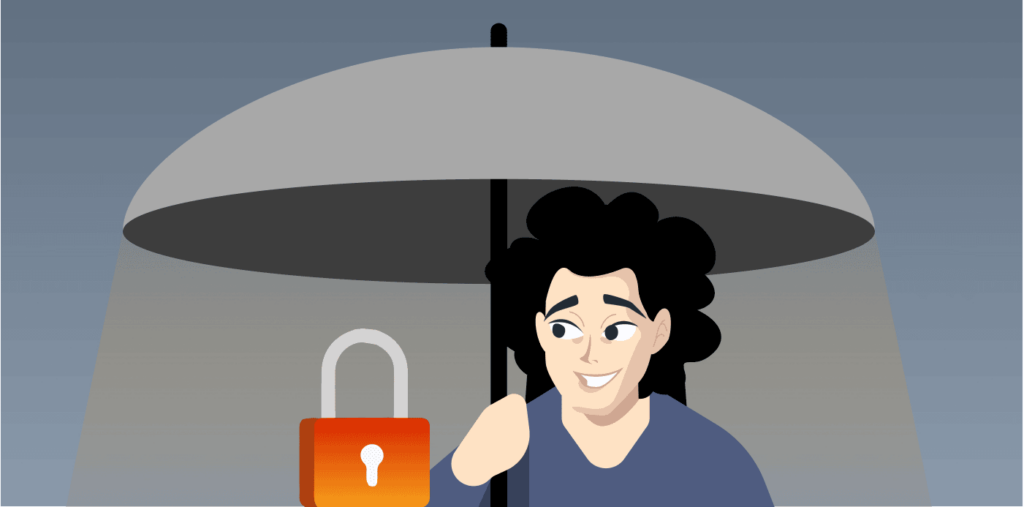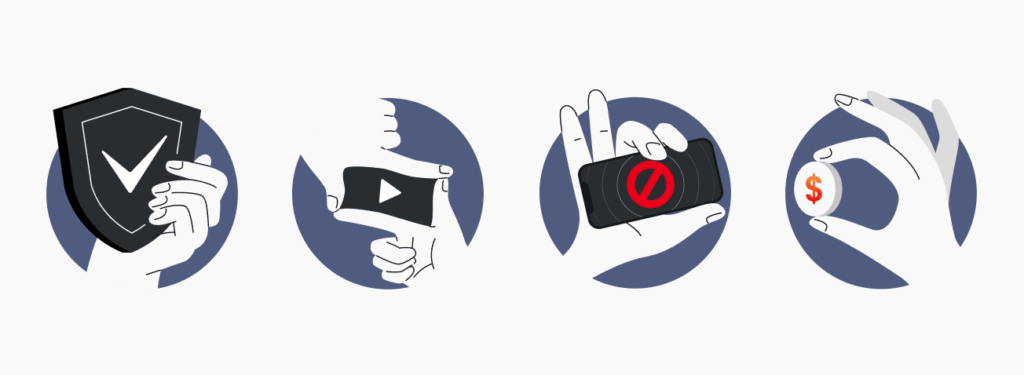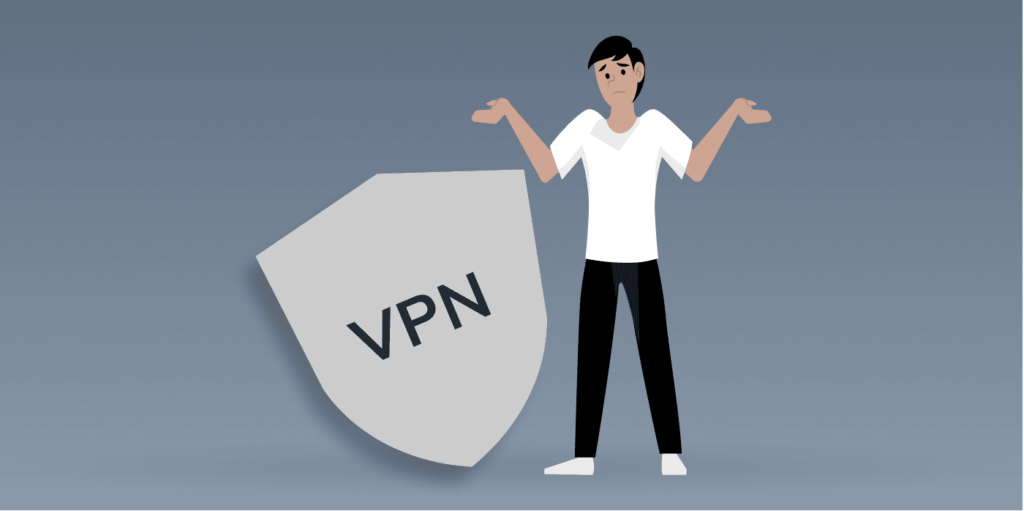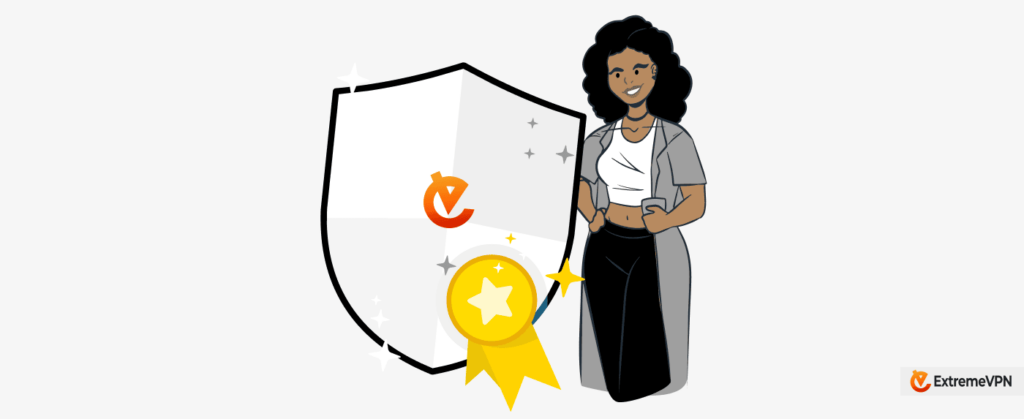The need for online security has recently reached new heights, particularly as homes are becoming more interconnected than ever. Today, almost all users of a home use the internet. Hence, it becomes a necessity to safeguard your home network from online threats.
One effective security tool is a VPN. In this guide, we’ll explain the reasons why a VPN has become an essential part of your home.
Top Reasons Why You Need a VPN at Home: Quick List

Here’s how a VPN proves to be useful at home:
- Protect Browsing History from ISP: Your ISPs are always looking for your traces. A VPN makes you invisible online, so you can’t be located.
- Enhanced Online Flexibility: A VPN provides you with flexibility—you can be physically in one place but virtually anywhere else at the same time.
- Privacy from Wi-Fi Operators: Just like ISPs, you can stay safe from the surveillance of Wifi administrators.
- Combat Bandwidth Restrictions: ISPs throttle your connection to manage the traffic among everyone. However, you can get rid of it with a VPN.
- Robust Defense Against Cyberattacks: VPNs use advanced AES encryption that keeps cybercriminals away from you.
- Improved Online Gameplay: With a fast connection, you can enjoy gaming with peace of mind.
- Defeat Digital Censorship: VPN bypasses restrictions, so you can access blocked websites from anywhere.
- Outsmart Price Discrimination: You can get the best deals for a lower price by connecting to another country.
- Privacy Against Government Surveillance: VPNs allow you to avoid data control of governments.
- Anonymous File Sharing: Several VPNs offer P2P servers so you can share files and do torrenting.
How Does a VPN Work?
It is crucial to understand how VPNs operate and why they should be a must-have component of your privacy toolkit. A VPN protects your online activities by encrypting your internet traffic and directing it through a server.
In simple words, you can call it a virtual pathway that makes it seem your connection originates from a distant server, not your actual location. Whenever you connect to a server, your device establishes a secure link with the VPN server, instantly obtaining its IP address.
Once this connection is established, every byte of your internet traffic goes through a VPN server. This means your Internet Service Provider (ISP) only sees your connection to the VPN server, oblivious to the numerous websites you visit.
A VPN becomes essential if you connect to public Wi-Fi networks like cafes, airports, and schools.
Top 10 Reasons You Need a VPN for Your Home
While some VPNs are only focused on security and privacy, others are versatile, like ExtremeVPN is capable of unblocking international streaming platforms or pulling exclusive discounts on global shopping sites.
Trust us, the benefits of using a VPN are diverse; that is why we have highlighted some of the major advantages below.
1. Protect Browsing History from ISP
In most cases, many ISPs state that they do not sell your data; however, that is entirely wrong. ISPs always track your activities, and it is common for them to be permitted to “share” your browsing history with third parties. These intermediaries, known as data brokers, subsequently sell this information to advertisers, creating a complex web of data transactions.
Although you can conceal your browsing history through various methods, with a premium VPN like ExtremeVPN, your ISP cannot track the websites you visit or the apps you use.
2. Enhanced Online Flexibility
With ExtremeVPN, you can obtain a new IP address from a different location, allowing you to appear in another country or city virtually. This guarantees your privacy protection from the perspective of apps and websites and also contributes to your physical safety—particularly if you are vulnerable to bullying or harassment.
3. Privacy from Wi-Fi Operators
ExtremeVPN protects your internet activities from Wi-Fi network operators who can track your activities (such as which websites you’ve visited). Also, it offers solutions to concerns about the Wi-Fi administrator accessing your browsing history in settings like schools, offices, or hotels.
4. Combat Bandwidth Restrictions
Did you ever feel the frustration of your connection slowing down during streaming, gaming, or downloading? If yes, you may be a victim of bandwidth throttling. ISPs impose restrictions on your network to relieve congestion by scrutinizing your traffic.
However, with a top-tier VPN like ExtremeVPN, your ISP loses the ability to track you or your traffic, which eliminates the grounds for connection throttling. Hence, a VPN can offer you a stable internet connection.
5. Robust Defense Against Cyberattacks
Due to the number of poorly secured Wi-Fi networks, the rate at which cyber threats aim to observe your activities and steal your information is quite alarming. A VPN acts as a shield here; it passes your traffic through an encrypted tunnel across a broad network of servers.
This encryption protects you from man-in-the-middle attacks, packet sniffing, and other common security risks.
6. Improved Online Gameplay
A VPN service can help you reduce ping during online gameplay. Ping, also called latency, refers to the time data packets travel from your machine to a server to receive a response; they can enhance or hinder your overall gaming experience.
You can effectively reduce ping through shorter connection routes between your device and gaming servers. You can do this by connecting to a closer server location using a VPN. This will optimize your gaming experience, and prevent DDoS attacks.
7. Defeat Digital Censorship
Various countries impose internet censorship for their political, religious, or economic motives, restricting their users from accessing particular apps and websites.
This can be frustrating for citizens and travelers in those regions, as it hampers access to crucial tools like email, news sites, and social media that once served as their link to the broader world.
VPNs have become indispensable tools for unblocking essential websites for several travelers, expatriates, and residents. By changing your IP address, a VPN allows you to surf the internet as if you were in a country where online access is unrestricted.
8. Outsmart Price Discrimination
You may not know this, but certain online retailers adjust prices according to your location. So, a VPN can be your ally in discovering better deals when shopping online. It helps you to gain the upper hand in circumventing location-based price discrimination and saving money on your purchases.
So, hack your way to saving and score better prices on plane tickets, hotels, car rentals, gifts, and more with ExtremeVPN.
9. Privacy Against Government Surveillance
Like ISPs, your government also tracks you. There are several reasons why they monitor you online; their primary concerns are related to law enforcement, national security, and public safety.
A VPN offers an extra layer of protection for your internet traffic. This ensures privacy from intruders like government entities. Regardless of whether you have anything to hide or it, safeguarding your online privacy is a right that everyone deserves to have.
10. Anonymous File Sharing
Torrenting can be partially illegal in certain regions, so doing it could result in tracking and potential prosecution for downloaders. While we strongly advise against doing illegal activities, we understand the universal need for online anonymity.
If you often download files from torrenting platforms, make sure to use a VPN. The best is to choose a VPN that offers P2P servers, like ExtremeVPN does. With encrypted traffic and a rerouted IP address, you can experience a secure environment, allowing you to access the files you want while staying anonymous.
Other VPN Benefits

A VPN has countless benefits besides just unblocking sites and reducing bandwidth restrictions. Here are some additional benefits a VPN offers:
Safe Online Shopping
Some online stores track your browsing history using IP addresses based on your online activities. This can result in paying more for previously purchased or viewed products. A VPN allows you to have a safe online shopping experience.
Secure Connection on the Go
While traveling, the number of people depending on public Wi-Fi networks increases. As these networks are mostly unsecured, they leave you vulnerable to cyberattacks. A VPN becomes your rescuer here because it encrypts your internet traffic and protects you from third-party interception for a smooth travel connection.
Robust Data Security for Businesses
Whether working remotely or in the office, every individual wants a higher standard of data security. Activating a VPN means you are ready to encrypt your internet traffic, whether for professional or personal purposes.
Businesses often deploy VPNs as a safe method to link remote workers and branch offices to the company’s network. However, these business-oriented VPNs function differently, prioritizing the protection of company data and facilitating seamless operations instead of enhancing employee privacy only.
Factors to Consider While Choosing the Best VPN Service

There are certain characteristics that a VPN must provide. Below, we are listing the important factors:
Security Protocols
If you wish to secure your online activity, choose a VPN with robust encryption standards (such as AES-256) and protocols like WireGuard, OpenVPN, IPsec, etc. Fortunately, you do not have to stress looking for such a VPN elsewhere. ExtremeVPN has got you.
No-logs Policy
The best VPN is the one that doesn’t store or collect your data activities. Hence, individuals concerned about strong privacy should choose a VPN accordingly. ExtremeVPN employs a strict no-log policy that keeps your online activity and connections confidential.
Moreover, strict processes are in place to guarantee that your data never lingers on a server. Additionally, our privacy policy undergoes rigorous scrutiny from independent auditors, ensuring we keep our promises.
Global Server Network
To evade geographic constraints, you should choose a VPN service has its servers in the countries or regions relevant to you. For example, if you like to stream Tubi, make sure the VPN offers a server in the US or Canada, as it’s only available there. ExtremeVPN boasts 6500+ servers in over 78 countries that allow you to find one that offers access to specific content.
Speed and Efficiency
Who loves a sluggish internet connection? Nobody. While the encryption process in a VPN may cause a slight decrease in speed, premium VPNs, like ExtremeVPN, are designed to ensure minimal speed.
ExtremeVPN’s servers are regularly optimized for swift connections, often taking a few seconds to activate, ensuring that your connection remains smooth every time.
Multi-device Compatibility
Make sure the VPN you’re about to select is compatible with all the devices you use at your home (PC, Android, iPhone, Mac, etc.). To be sure, you should explore the array of apps a service provides and assess their compatibility with your requirements.
ExtremeVPN offers dedicated applications for your Windows, Android, Mac, iOS, and Linux devices, as well as a Chrome extension. This proves that our VPN integrates across all your devices.
Customer Assistance
Lastly, evaluate how strong the VPN’s support team is—check which options they offer for customer support, i.e., live chat or email support, whether they are available 24/7, or do they offer quick solutions to your problems. Thankfully, ExtremeVPN employs a dedicated customer support team that is readily available to assist you 24/7.
Protecting Your Devices at Home

From hiding your activities from prying ISPs to accessing global video markets, there is no end to the benefits that a VPN offers for your home. However, you should take additional measures, too. While a VPN provides a protective layer, many sneaky advertisers and snoops can still obtain data through advanced methods like browser fingerprinting.
So, for an additional layer of defense, you can consider implementing a tracker blocker. Plus, activate the built-in blocking features available in most browsers. It is also noteworthy that while much of your web browsing enjoys the protection of HTTPS encryption, there is more to the story.
HTTPS websites are usually secure as they are encrypted; however, they don’t hide everything from your ISPs. Hence, apart from using a VPN, you should follow certain measures to protect yourself. These include:
- Antivirus software to guard your devices
- A multi-factor authentication, whenever possible
- A reliable password manager to elevate your security
Your Home Network Security
Your home networks are generally secure. It’s unlikely that someone would switch your router and patiently wait for your valuable data. It’s not too much effort; attackers aim for multiple successful hits to maximize their gains. If your home doesn’t have a lot of people coming and going in, it’s unlikely that you’ll be a target.
While home remains your safe spot, specific threats may persist. A significant concern arises from the company granting you internet access. The US Congress now allows ISPs to sell user data and online activities to interested parties.
Although ISPs don’t reveal exactly what data they sell, the idea itself is concerning. However, a VPN service raises the bar for external observers, including an advertiser, to connect your online traffic to you. Hence, no matter what, getting a premium VPN like ExtremeVPN is essential to protect yourself against potential cyber threats and snoopers.